Self-Study
You are interested in a certification, but don’t have time to attend a training course?
To prepare for a certification we highly recommend attending a course offered by a training provider, although this is generally not a formal requirement.
The amount of preparation required will naturally depend on your level of experience within the particular area.
As you can see below, there is a wealth of literature available to aid your preparation.
To book your online exam, visit our Exam Registration page.
IREB
CPRE Foundation Level
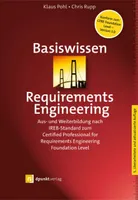
The first place to consult to aid your preparations for any CPRE exam is IREB’s downloads section ⤴. This contains a number of documents available free of charge, such as the CPRE Foundation Level Syllabus ⤴, which lists and describes all the topics that are relevant for both the certification exam and your career as a requirements engineer. The syllabus is condensed and compact, and as such the perfect starting point and reference for your self-study.
Another helpful resource is the CPRE Foundation Level Handbook ⤴, which provides a more comprehensive overview than the syllabus, while remaining more compact than the official books or a training course and free of charge.
IREB also offers a Glossary (applicable to all levels) ⤴, aligned with both the official book (see below) and the syllabus and examination questions.
Of additional help is the CPRE FL practice exam ⤴ containing solutions and correction aids, in the same form, structure, and style of the actual examination.
For an in-depth guide, we recommend the official Study Guide Requirements Engineering Fundamentals ⤴ by Klaus Pohl & Chris Rupp. Their book is designed for self-study and covers the curriculum for the CPRE Foundation Level exam as defined by the IREB.
CPRE Advanced Level
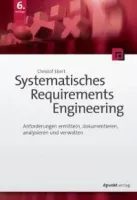
For the CPRE Advanced Levels, the corresponding syllabus is an important guide and starting point in your preparation for the certification. Depending on your area of specialisation in RE, each Advanced Level has its own syllabus, which can be found here.
Further helpful artefacts provided by the IREB are the handbooks for the CPRE Advanced Levels. These are valuable resources for trainers, trainees, and practitioners alike, who are interested in getting a detailed insight to the specific Advanced Level. Although each handbook offers substantive information, it is not a replacement for a dedicated training course.
The IREB CPRE Glossary (applicable to all levels) ⤴ provides an overview of terms used throughout the syllabus, examination and literature.
Finally, the IREB kindly provides a practice exam for each Advanced Level in the same form, structure, and style of the actual examination, including solutions and correction aids to further advance your preparation. Please choose according to your specialisation in RE:
German speaking candidates preparing for CPRE Advanced Level certification might also want to read Systematisches Requirements Engineering: Anforderungen ermitteln, dokumentieren, analysieren und verwalten ⤴ by Christof Ebert.
Digital Design Professional Foundation Level
While not compulsory, it is highly recommended to attend a training course offered by a registered training provider. The full and up-to-date list ⤴ of training providers is available on the DDP website.
Whether or not you are interested in attending a course, there is a number of official documents to aid in your preparation for the certification:
- The syllabus (available on the DDP website) will provide an overview of the topics covered in the exam.
- The DDP glossary provides an overview of terms used throughout the syllabus, handbook and examination.
- The DDP handbook provides greater detail on the topics covered in the exam and is closely aligned with the syllabus and glossary.
The latest version of all official documents, also including the examination regulations and practice examination with answers, can be downloaded directly on the DDP website ⤴.
ISTQB
Whichever ISTQB Certified Tester certification you want to prepare for, it’s worth consulting the ISTQB Glossary ⤴, which is applicable to all Certified Tester examinations and literature.
Certified Tester Foundation Level
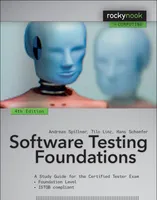
The ISTQB helps you prepare for CT Foundation Level certification by providing you all the essential and latest documents in its download section ⤴. It offers you the exam structure and rules, as well as the Foundation Level syllabus. The syllabus covers all the relevant training topics, making it an ideal resource for your self-study.
For candidates wanting an even more in-depth preparation for the CT Foundation Level certification exam, we recommend Software Testing Foundations, A Study Guide for the Certified Tester Exam ⤴ by Andreas Spillner, Tilo Linz, and Hans Schaefer. This study guide is ISTQB compliant and also mentions the latest updates to the Certified Tester syllabus.
Certified Tester FL Agile Extension
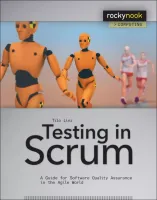
Just like for the Foundation Level the ISTQB enables you to prepare for Agile Extension certification by providing you the syllabus for the Agile Extension ⤴. Being also the source for trainers to structure their courses, it serves candidates very well in their preparation – whether individually or in conjunction with a training.
For an in-depth learning guide that covers the ISTQB syllabus for Agile Software Testing we recommend Testing in Scrum, A Guide for Software Quality Assurance in the Agile World ⤴ by Tilo Linz. The book is relevant for both students preparing and trainers structuring courses for Agile Extension certification.
Certified Tester Acceptance Testing
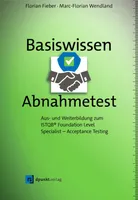
Just as with all other ISTQB levels, the ISTQB provides the curriculum and sample exam and answers for the Acceptance Testing certification.
German speakers looking for a more in-depth preparation for the ISTQB Certified Tester Acceptance Testing certification examination may want to additionally consult the officially-recommended self-study book, Basiswissen Abnahmetest ⤴ by Florian Fieber and Marc-Florian Wendland.
Certified Tester Advanced Level
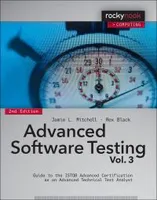
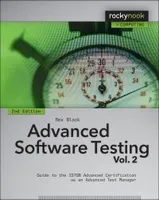
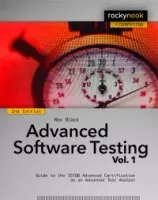
If you are a holder of a CT Foundation Level certificate you are eligible to continue on to the Advanced Level certifications, of which there are currently four in the core part. For each of them the ISTQB provides a comprehensive syllabus, which is available free to download:
Additionally, the ISTQB enables you to advance your preparation for Advanced Level certification with sets of sample questions for each of the four core Advanced Levels:
Also candidates preparing for CT Advanced Level certification have a selection of in-depth learning guides at hand that are aligned with the corresponding ISTQB syllabus. Each of the following books also includes sample questions at the appropriate level of difficulty to help you advance your self-study as efficiently as possible.
For the CTAL Test Manager we recommend Advanced Software Testing Vol. 2, 2nd Edition, Guide to the ISTQB Advanced Certification as an Advanced Test Manager ⤴ by Rex Black.
For the CTAL Test Analyst we recommend Advanced Software Testing Vol. 1, 2nd Edition, Guide to the ISTQB Advanced Certification as an Advanced Test Analyst ⤴ by Rex Black.
For the CTAL Technical Test Analyst we recommend reading into Advanced Software Testing Vol. 3, 2nd Edition, Guide to the ISTQB Advanced Certification as an Advanced Technical Test Analyst ⤴ by Rex Black and Jamie L Mitchell.
UXQB
CPUX Foundation Level
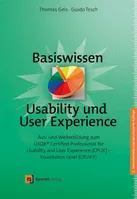
An ideal place to begin your preparation for CPUX certification is the UXQB’s Documents Section ⤴. This contains a number of useful reference documents, such as the syllabus for CPUX-F and CPUX Advanced Levels, as well as practice exam questions.
German speaking candidates preparing for CPUX certification might also want to read the second edition of Basiswissen Usability und User Experience ⤴, by Thomas Geis and Guido Tesch.
Thomas Geis is a founding member of the UXQB, while Guido Tesch plays an active role in the German Institute for Standardisation (DIN), setting standards across the field of UX and UI design. The second edition has been updated to include new topics such as User-Interface Specification, Ethical Design, and Sustainable Design. It also aligns with the UXQB® CPUX-F curriculum (Version 4.01, 2023), making it an excellent resource for exam preparation.
CPUX Advanced Level - Usability Requirements Engineering
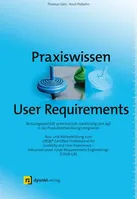
An ideal place to begin preparing for the CPUX Advanced Levels is the UXQB’s Documents Section ⤴. This contains a number of useful documents such as the respective syllabi, exam regulations and practice questions for the theoretical and practical parts, test reports, examples and more.
For a more in-depth preparation for the CPUX-UR certification, German-speaking candidates may want to refer to the official study book Praxiswissen User Requirements ⤴ by Thomas Geis and Knut Polkehn. Both authors are active members of the UXQB, meaning that this book goes beyond conforming to the CPUX-UR Syllabus and provides the necessary knowledge directly from the source.
iSAQB
CPSA® Foundation Level
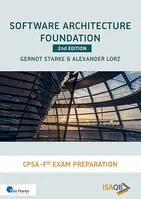
The most import step of your preparation for CPSA®-F certification is taking a close look at the documents section of the iSAQB® ⤴. There you will find the latest version of the CPSA®-F curriculum, exam regulations and a mock exam, as well as a comprehensive glossary of software architecture terminology. The curriculum provides clearly defined goals and specific vocabulary for each of its sections, which helps make your preparatory work more efficient. Within the exam regulations you will also find example questions that give you a glimpse into the actual test scenario.
For candidates looking for a more in-depth preparation we can also recommend Software Architecture Foundation, by Gernot Starke and Alexander Lorz ⤴, which complies with the CPSA®-F curriculum and covers it accordingly, as well as Software Architecture Fundamentals ⤴ by Mahbouba Gharbi, Arne Koschel, and Andreas Rausch.
TMMi
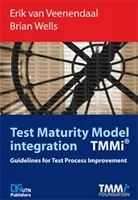
Candidates looking to prepare for TMMi Professional certification should consult the syllabus and sample exams, of which the latest version is available to download directly from TMMi ⤴.
For those looking for a more in-depth preparation for the exam and familiarisation with TMMi and its application, there are some books officially endorsed by TMMi ⤴. A relatively compact overview is offered in The Little TMMI, Objective-Driven Test Process Improvement by Erik van Veenendaal and Jan Jaap Cannegieter, available in English, Dutch and Chinese.
For a more comprehensive overview, also consider the more extensive book Test Maturity Model integration TMMi (Guidelines for Test Process Improvement), by Erik van Veenendaal and Brian Wells.
